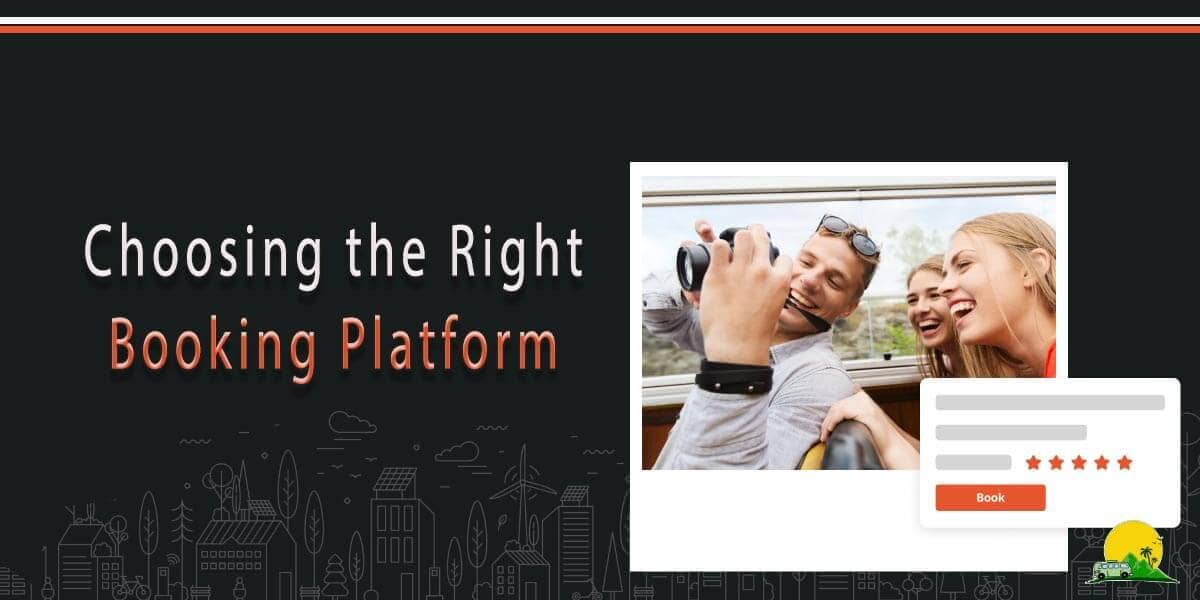
Choosing the Right Booking Platform: Factors to Consider
As a business owner providing services or experiences, you understand the importance of having an efficient booking system. An online booking platform allows customers to browse your offerings and book reservations anytime, anywhere, easily. This convenience drives more bookings and sales for your operation. However, with the many booking software options on the market, selecting the right one for your needs can feel overwhelming.
index
ToggleDetermine Your Booking Needs
The first step is gaining clarity on the core functions and capabilities your booking system must have. Start by interviewing your team on their day-to-day responsibilities and pain points. Identify processes that could benefit from automation or improvement with new technology. Similarly, note any current inefficiencies or limitations of your existing manual or basic online system.
Categorize needs as “must-haves” versus “nice-to-haves”. Must-haves are non-negotiable requirements for your operations, while nice-to-haves offer potential value but aren’t deal-breakers if absent. Essential must-haves include online and mobile booking, payment processing, and inventory management. Depending on your situation, more advanced capabilities like yield management, channel management, and reporting may fall under nice-to-haves.
Also, factor in your long-term strategic goals. Does the platform enable the scalability, flexibility or data insights needed as your business grows? Aligning your needs analysis with objectives helps identify capabilities crucial for future-proofing selection. With a comprehensive list of requirements, you have an objective framework for evaluating potential booking solutions.
Consider Your Budget
Establish upfront how much you can reasonably invest in a booking system. Most platforms offer multiple pricing tiers with varying features and costs. Understand any setup, customization, transaction or ongoing subscription fees to factor into your total cost of ownership. Some quality providers even offer generous free trials for thorough product exploration.
Also, examine what ongoing support and training options are included versus priced separately. Costs that seem small individually can add up significantly over time. Weigh potential savings from streamlined processes or increased bookings against investment outlays. And remember – your goal isn’t the lowest price but the best overall value, considering your specific needs and financial picture.
Evaluate Ease of Use
The booking system’s usability matters greatly for both customers and staff. An intuitive interface simplifies the booking flow, builds confidence and encourages repeat bookings. Similarly, easy administration prevents staff frustration and training burdens that waste time and lower productivity.
Thoroughly test-drive candidate platforms yourself before committing. Focus on tasks like listing and managing inventory, processing reservations and payments, viewing reports and customizing settings. Note any clunky or confusing steps to streamline. Also, pay attention to visual design, responsiveness on mobile and how seamlessly the software integrates into your website.
Consider inviting key staff members to participate in platform demonstrations and trials. Their first-hand experiences provide valuable user perspectives you may need help identifying. Usability should remain a high priority, even if advanced capabilities seem enticing on paper. Frictionless booking experiences are paramount for customer and employee satisfaction.
Evaluate Reporting & Analytics

Actionable data insights empower better decision-making. A quality booking platform provides robust reporting functionality and analytics to glean valuable operational intelligence. Evaluate the depth and customizability of included reports.
Important metrics may include bookings by date, source, package or staff member. You’ll also want financial reporting like payment summaries, commission tracking and tax documents. Consider your need for segmented customer profiles and behaviour patterns over time.
Advanced platforms take analytics a step further with business intelligence dashboards. These customizable interfaces transform raw data into clear visualizations like graphs, maps and performance indicators. Such tools streamline monitoring key metrics and detecting trends to optimize strategies.
Ensure the solution offers export options for reports to integrate with your accounting software. And confirm the level of support for custom or automated reporting you may need as your needs evolve. Comprehensive data and flexible analytics empower informed management of your booking business.
Assess Integrations & Customization
No single platform can meet all needs, so evaluate integration capabilities. Best-in-class providers design open APIs, allowing deep connections between their software and other solutions. Ask what third-party tools are currently supported via pre-built integrations versus custom work.
Core integrations include your website, channel managers, property management systems, POS systems and payment gateways. The ability to sync critical data across platforms streamlines operations significantly. You’ll also want flexibility to integrate new services as your tech stack grows.
Similarly, assess the customization options within a given platform. While some standardization benefits scaling businesses, room for personalization ensures a great fit. Consider capabilities like custom booking forms, email templates, booking pages and public-facing themes. In-app settings to control workflows, pricing rules, and business policies provide valuable control.
Look for solutions offering configurable fields, conditional logic and development tools. These advanced customization layers future-proof your investment by supporting evolving processes without limitations. Balance flexibility needs against technical requirements – some platforms require coding knowledge while others offer drag-and-drop tools.
Evaluate Support & Training
Even the most full-featured booking system requires guidance, especially during initial setup and launch. Comprehensive support plays a significant role in your go-live experience and long-term success. Evaluate the quality of onboarding assistance, documentation resources and ongoing training options.
Key questions include average first response times, channels for obtaining help and whether live chat supports are available. Also, assessments had training like webinars, video tutorials, or in-person sessions. Ongoing access to product specialists helps maximize your ROI as needs change over time.
Consider additional support costs for premium assistance or large custom projects. Affordable or included support services provide peace of mind that issues will be resolved efficiently. A dedicated account manager for enterprise clients ensures priority handling of complex needs.
Prioritize platforms with a proven track record for support. Read online reviews to gauge typical customer experiences. Pre-sales representatives’ responses, expertise, and helpfulness also foreshadow post-sales assistance quality. Proper training and support set the stage for smooth operations and platform mastery.
Consider Industry Specialization

While some platforms aim to serve all business types, specialized solutions better meet unique industry needs. For particular activities, tours and attractions, prioritize providers with deep experience in your vertical. Their feature sets evolved specifically to address common challenges and processes within space.
Specialized platforms often integrate with industry-standard channel managers and property management systems out of the box. Pre-configured functionality streamlines complex distribution, inventory management and operational workflows in areas like transportation. Their data models and reporting also provide insights relevant to your business model.
Specialist vendors partner closely with industry associations to stay on top of evolving best practices, regulations and technologies. Their expertise helps future-proof your investment against shifting requirements. And communities of fellow operators on their platforms promote collaboration on proven strategies.
While general solutions work for some, specialized providers remove limitations holding you back from optimizing operations. Their laser focus on your niche empowers maximizing revenue and efficiency through industry-tailored capabilities and support.
Prioritize Scalability
Even startups aim to grow, so scalability must be a selection priority. Consider platform limitations as your business expands regarding locations, offerings, transactions or customer volumes. Questions include the ability to support high booking volumes during peak seasons seamlessly.
Evaluate maximum user, inventory, transaction and data storage capacities. Understand upgrade paths and costs to higher tier plans offering increased throughputs. APIs and developer tools empower scaling custom solutions vertically on a single platform.
Look for proven track records that reliably support enterprises with thousands of users, locations, and concurrent bookings. Geographical coverage also matters if expanding globally. Distributed cloud architectures and multilingual interfaces address the challenges of operating internationally.
Similarly, integrated channel management, property management and business intelligence tools scale complex operations. Their roadmaps reflect a commitment to innovating solutions and keeping pace with industry and technological changes. Scalable platforms protect your investment and empower ambitious growth strategies.
Read More: Booking Last-Minute Travel: Tips and Tricks to Save Money
Choose Wisely After Comprehensive Evaluation
Selecting the right booking platform requires thorough due diligence and matching capabilities to your unique requirements. Carefully evaluate core needs, budget, usability, reporting, customization, support quality and other factors. Test drive finalist solutions yourself and get team feedback.
Consult industry peers on their experiences for additional perspectives beyond platform marketing. Remember, your goal isn’t the lowest cost initially but the best long-term value and fit. With comprehensive diligence, you can be confident your choice sets the stage for streamlined operations and data-driven growth. Staying objective by prioritizing must-have criteria leads to the optimal partner to take your booking business to new heights.
Recent Posts
Contact Us
+1 437 499 4559










